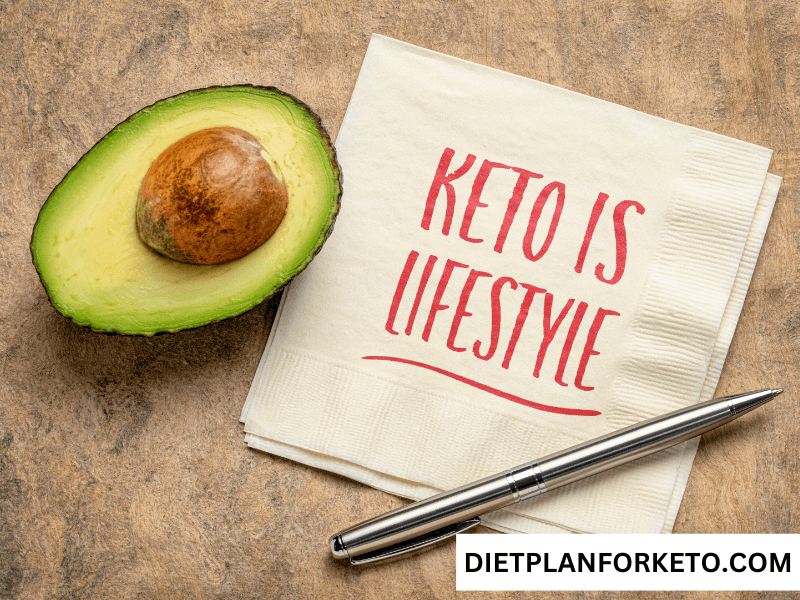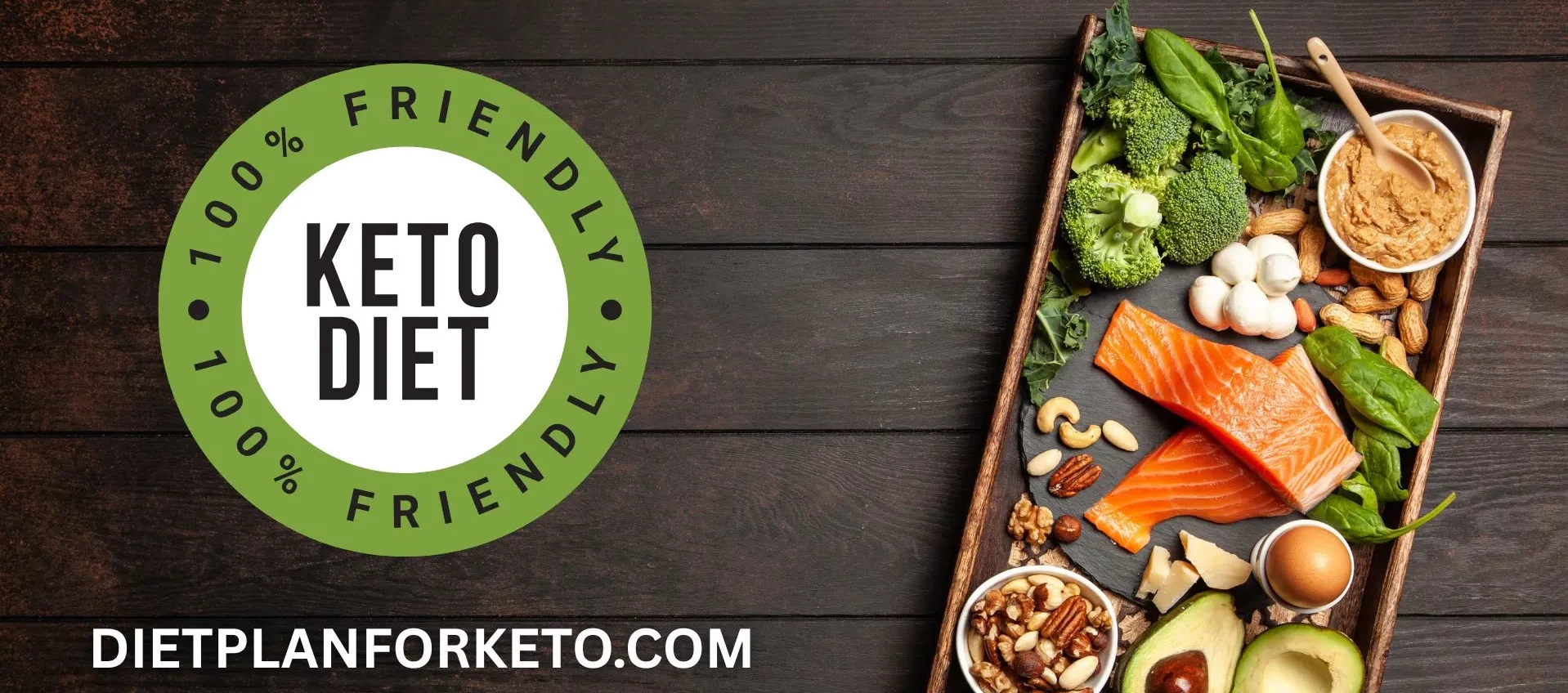The ketogenic diet has gained massive popularity in recent years, promising rapid weight loss, improved mental clarity, and better energy levels.
However, despite its success stories, misinformation continues to spread, leaving many people confused about what’s true and what’s not.
This guide aims to debunk the 10 most common keto myths so you can make informed decisions and fully benefit from the ketogenic lifestyle.
Table of Contents:
- Myth #1: The Keto Diet is Just Another Fad
- Myth #2: You Can’t Eat Any Carbs on Keto
- Myth #3: Keto is Bad for Your Heart
- Myth #4: You Can Eat Unlimited Fat on Keto
- Myth #5: The Keto Flu is Permanent
- Myth #6: Keto is Only for Weight Loss
- Myth #7: Keto Ruins Your Athletic Performance
- Myth #8: You Can’t Build Muscle on Keto
- Myth #9: Keto Causes Nutrient Deficiencies
- Myth #10: Keto is Impossible to Maintain Long-Term
- Additional Keto Tips for Success
Myth #1: The Keto Diet is Just Another Fad
Reality: Keto Has Been Around for a Century
The ketogenic diet is not a modern trend; it has existed since the 1920s when doctors developed it to treat epilepsy. Unlike fad diets that come and go, keto has a scientifically-backed foundation and proven long-term benefits, making it far from a passing trend.
Additional Tip:
To stay successful on keto, focus on whole, natural foods rather than relying on heavily processed “keto-friendly” products that may contain hidden carbs and unhealthy ingredients.
Myth #2: You Can’t Eat Any Carbs on Keto
Reality: Keto Allows Some Carbs
While keto is a low-carb diet, it does not mean zero carbs. Many keto followers consume 20-50g of net carbs daily, allowing for vegetables, nuts, and even small amounts of fruit without breaking ketosis.
Additional Tip:
Use tracking apps like MyFitnessPal or Carb Manager to monitor your daily carb intake and stay within your target range.

Myth #3: Keto is Bad for Your Heart
Reality: Keto Can Improve Heart Health
While some fear keto’s high-fat intake raises cholesterol, studies suggest that keto can improve heart health by increasing HDL (good cholesterol) and lowering triglycerides. The key is choosing healthy fats like avocado, olive oil, and fatty fish rather than processed fats.
Additional Tip:
Avoid unhealthy trans fats found in fried foods, margarine, and hydrogenated oils. Stick to natural sources of fats like butter, coconut oil, and nuts.
Myth #4: You Can Eat Unlimited Fat on Keto
Reality: Excess Calories Still Matter
Just because keto is high-fat does not mean you should overeat it. Calories still count, and excessive fat intake can lead to weight gain rather than weight loss. The best approach is moderation and choosing healthy fat sources.
Additional Tip:
Prioritize nutrient-dense fats like grass-fed butter, ghee, and pasture-raised meats for better overall health.
Myth #5: The Keto Flu is Permanent
Reality: Keto Flu is Temporary
The “keto flu” refers to symptoms like headaches and fatigue as your body adjusts to burning fat instead of carbs. This usually lasts a few days to a week and can be minimized by staying hydrated, getting enough electrolytes, and eating adequate fat.
Additional Tip:
Drink bone broth and increase sodium intake with pink Himalayan salt to ease symptoms.
Myth #6: Keto is Only for Weight Loss
Reality: Keto Has Many Health Benefits
While keto is widely known for fat loss, it also helps with mental clarity, reduced inflammation, improved blood sugar levels, and even neurological benefits.
Additional Tip:
Try incorporating intermittent fasting with keto for even greater health benefits.
Myth #7: Keto Ruins Your Athletic Performance
Reality: Athletes Can Thrive on Keto
Many athletes successfully follow keto, using fat as a steady fuel source instead of carbohydrates. While adaptation takes time, performance often improves over the long term, particularly for endurance athletes.
Additional Tip:
Consider supplementing with electrolytes and medium-chain triglycerides (MCTs) to boost energy and performance.
Myth #8: You Can’t Build Muscle on Keto
Reality: Keto Supports Muscle Growth
Protein intake on keto can be adjusted to support muscle maintenance and growth. Many bodybuilders and strength athletes successfully follow targeted or cyclical keto diets to optimize performance.
Additional Tip:
Increase protein intake to around 1.2-2.0g per kilogram of body weight if you’re training for muscle growth while staying in ketosis.
Myth #9: Keto Causes Nutrient Deficiencies
Reality: Proper Planning Prevents Deficiencies
A well-planned keto diet includes leafy greens, nuts, seeds, fish, eggs, and organ meats, ensuring adequate nutrients. Supplementing magnesium, potassium, and sodium can help cover any gaps.
Additional Tip:
Include a variety of non-starchy vegetables and nutrient-dense foods to get a well-rounded intake of vitamins and minerals.
Myth #10: Keto is Impossible to Maintain Long-Term
Reality: Keto Can Be Sustainable
Many people successfully follow keto for years, adapting it to their lifestyle. Flexibility, meal planning, and occasional carb cycling make it sustainable for the long term.
Additional Tip:
Experiment with different keto variations, such as targeted keto (TKD) or cyclical keto (CKD), to fit your lifestyle and long-term goals.
Additional Keto Tips for Success
- Stay Hydrated – Drink at least 2-3 liters of water per day to prevent dehydration.
- Prioritize Whole Foods – Avoid ultra-processed “keto” snacks loaded with additives and artificial sweeteners.
- Monitor Electrolytes – Ensure adequate intake of sodium, magnesium, and potassium to prevent cramping and fatigue.
- Plan Your Meals – Meal prepping makes it easier to stick to keto and avoid temptations.
- Experiment with Carb Cycling – Some people benefit from adding strategic carb-up days without falling off track.
- Find Keto-Friendly Restaurants – Many places now offer low-carb substitutions, making it easier to eat out while staying on keto.
Conclusion
The ketogenic diet is misunderstood, but the facts speak for themselves. Separating myths from reality allows you to make informed decisions and enjoy keto’s full benefits. Whether your goal is weight loss, mental clarity, or overall health, keto can be an excellent choice when done correctly.
For more in-depth keto resources, check out this guide on Keto Basics to start your journey with expert advice!
